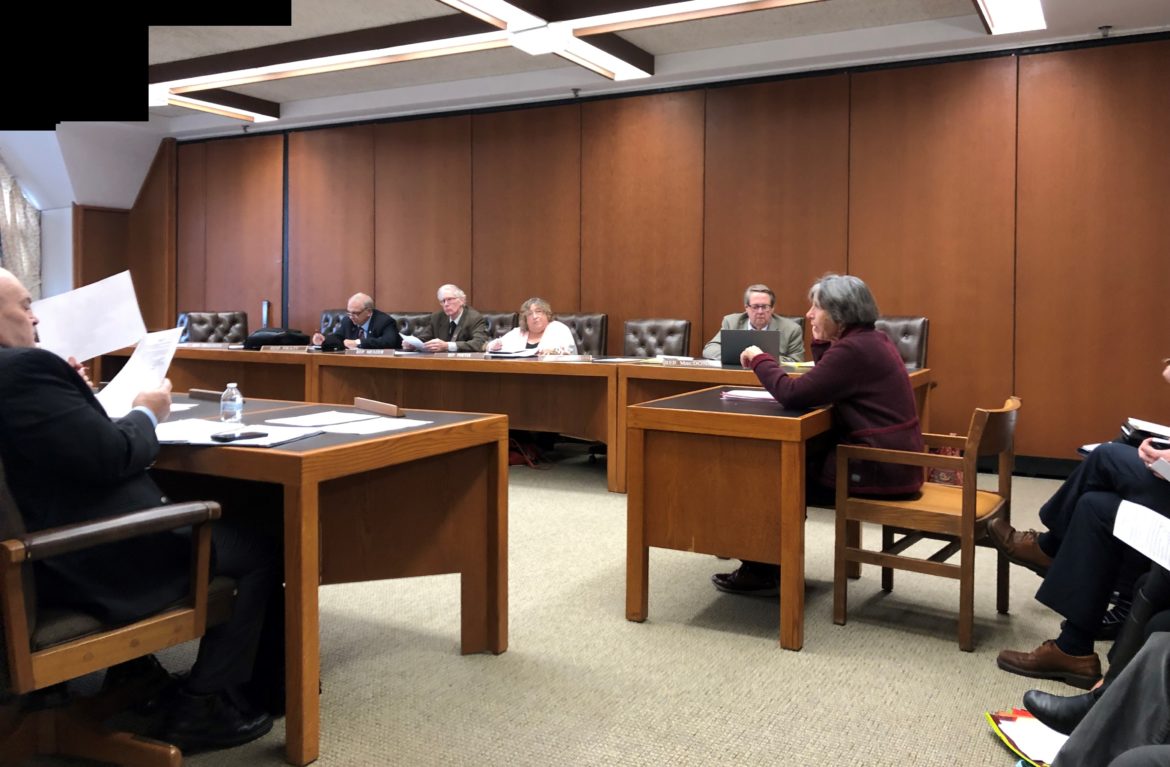By PAULA
TRACY, InDepthNH.org
CONCORD – It’s
crunch time right now at the State House.
Deadlines loom for 156 retained bills from the last session, which will be among the first orders of business when the legislature returns on Jan. 8, 2020.
November also means deadlines for some of the 200 active statutory commissions and study committees that will advise what legislation will be undertaken.
Unlike during the normal legislative season when there are hearings with the public testifying, this is committee work that has dragged on over the summer.
Nov. 14 is the deadline for the House to report out their bills and the Senate has until Dec. 19 to get their leftover work done.
It’s also preparation time for bills on everything from legalizing marijuana, to creating a carbon tax, to finding a school funding formula that works for everybody.
There are more than 600 bills in the House and almost 200 bills in the Senate expected to be debated next year.
Deadlines to file bills have passed but legislators are still trying to get co-sponsors and to work on the finer details of their bills.
State Rep. Marjorie Porter, D-Hillsborough, a member of the House Municipal and County Government Committee, said only about one-tenth of the bills filed each year are passed into law.
She explained that work being done now is on “the tricky bills, the ones that need work, are not quite ready for prime time.”
“Maybe they are a little controversial or we need to wait for the results of the court case,” Porter explained. “They can be killed, amended or sent to interim study.”
State Rep. Judith Spang, D-Durham, said it is a particularly busy time in Concord right now.
Spang was in Concord this week to push an amendment to a retained bill in the House Municipal and County Government Committee which would require shoppers to pay 10 cents per single-use plastic bags – up to five bags and 50 cents per purchase – which may go before the legislature when they return.
Republicans are dead set against it.
All legislators are elected at the same time for a two-year term. They are now in the middle of their term. After the first year, bills can be retained for consideration in the second year.
But the second year of the session, there is no retaining of bills, “because we can’t force the next legislature to write a bill,” she explained.
In addition to retained bills, there are more than 200 active statutory commissions. These bodies not only include legislators but experts on subjects or issues to resolve.
Some commissions have deadlines also in November to submit a report on their findings. Others will continue to work for some time on their issues.
The issues being studied by active statutory commissions include school funding, mental health and wellness programs, “grandfamilies,” wake boats, snowmobile access, shoreland septic, drinking water safety, drug costs, barriers to the increased density of land for workforce housing, internet sales, and teacher preparation. A full list of those commissions and their next or final meetings can be found here.
http://www.gencourt.state.nh.us/statstudcomm/
And it is also a time for the governor to start putting forth new initiatives to be considered as bills for the next year.
Sununu has put forth plans on legislation he wants for affordable housing and family leave. He has also said he would like to push forward legislative measures on bail reform and college debt assistance.





